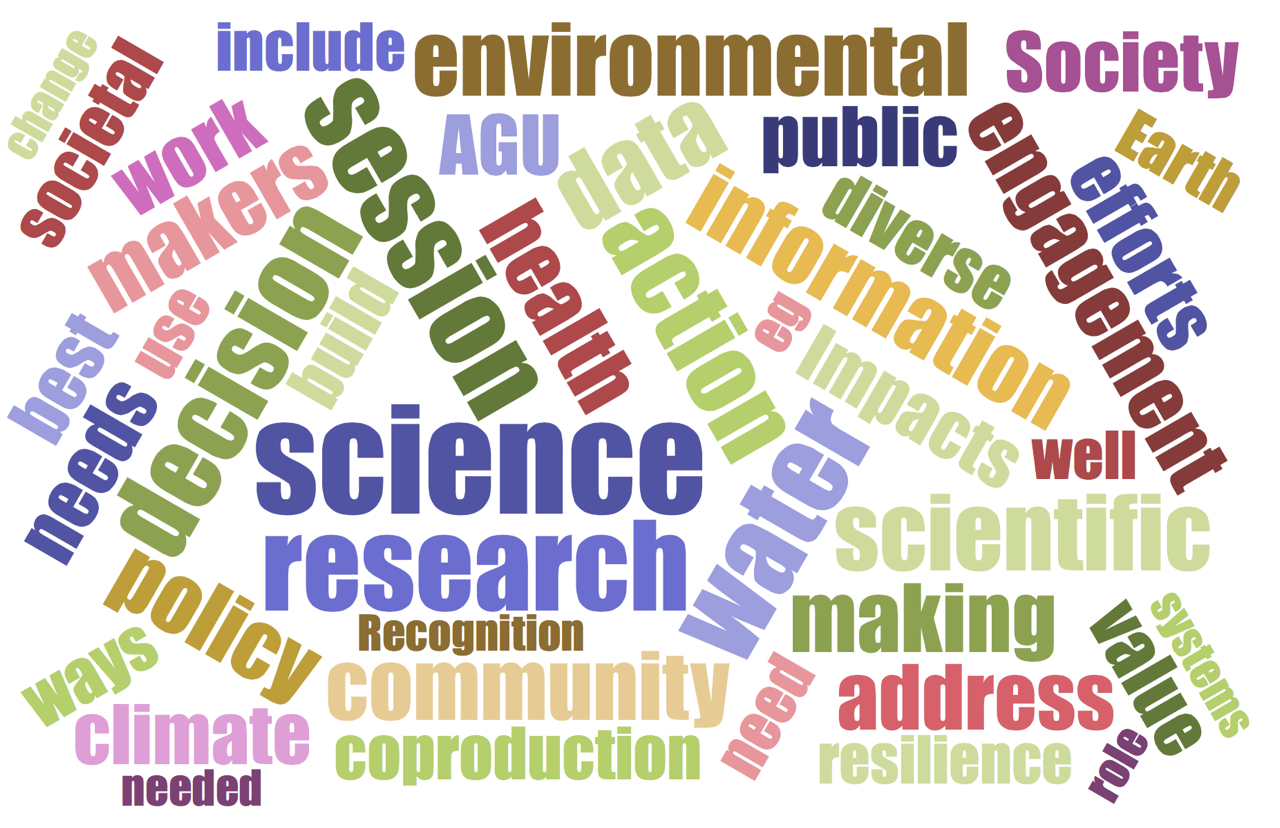
Thriving Earth Exchange and Science To Action at AGU’s Centennial Fall Meeting
View recordings of Centennial Sessions held at AGU Fall Meeting 2019 that focus on the intersection of science and society including community science and climate action.
Science & Society Panel: As the world becomes increasingly complex and science becomes ever more integral to daily life, it is more important than ever that scientists engage with lay audiences – from policy makers to the media to communities and public audiences – to help them connect to science information and concepts. Hear from a panel of scientists who work to communicate, engage, and collaborate with these audiences about the role their outreach has had in making positive change.
Value of Diversity in Team Science : As AGU looks ahead to its next 100 years, how will earth and space science continue to evolve? This plenary presentation will focus on the value of diversity in our work. Specifically, how engaging with diverse ideas and perspectives can make us better scientists and ensure our work is more broadly applicable to societal needs.
People Impacted By Climate Change : This panel discussion featured speakers from communities who are already impacted by and responding to climate change in innovative ways.
What is Science to Action at AGU all about?
AGU Fall Meeting is the largest Earth and space science gathering in the world, with approximately 28,000 attendees annually. This year’s meeting was held in San Francisco, California on December 9-13, 2019.
Within this meeting, a group of members who organize themselves under the banner of Science to Action carried out a collection of sessions, workshops, and networking events that are about how we connect science with action through partnering with communities and working with decision makers. Another group, Native Science, hosted events that explore the connections between science and indigenous ways of knowing. All of us – Thriving Earth Exchange, Science to Action, and Native Science – share the goal of helping all communities thrive by increasing science engagement to improve daily life and better confront concerns posed by extreme events, climate and land cover change, and natural hazards. We share an evidence-based conviction that co-created science or community science is a good way to do this important work.
Email [email protected] for an introduction.
Click here for review Science to Action activities from previous years.

